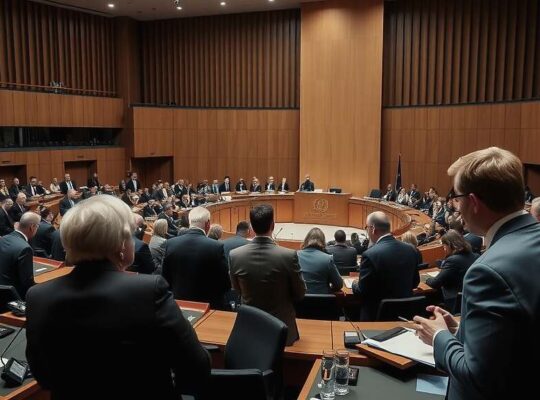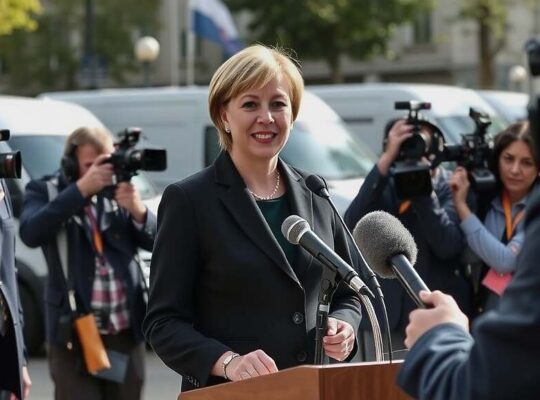Germany’s economic stagnation raises questions about policy effectiveness and long-term growth prospects. Preliminary data released Thursday by Destatis, the Federal Statistical Office, revealed that the nation’s Gross Domestic Product remained unchanged in the third quarter of 2025 compared to the previous quarter, a standstill that underscores persistent challenges facing the German economy. While investment in equipment demonstrated a positive trajectory, a concerning decline in exports is offsetting any potential upward momentum.
The figures, though representing a marginal year-on-year increase of 0.3 percent compared to the third quarter of 2024, mask underlying vulnerabilities. This slight growth, adjusted for price and calendar variations, offers little reassurance to policymakers grappling with a complex economic landscape. The revised data also revealed an upward adjustment of 0.1 percentage points to the second quarter’s GDP contraction, previously reported at -0.3 percent, now adjusted to -0.2 percent. This suggests the slowdown may have been more pronounced than initially assessed.
The export decline warrants particular scrutiny. Germany’s traditional reliance on robust export performance as a cornerstone of its economic strength is demonstrably weakening, potentially reflecting broader shifts in global trade dynamics and increased competition. Concerns are mounting regarding the impact of geopolitical instability and protectionist policies on Germany’s ability to maintain its position as a leading exporter.
Economists are now questioning the adequacy of Chancellor Scholz’s current economic strategy, which has emphasized supply-side reforms while seemingly overlooking the need for more aggressive stimulus measures to bolster domestic demand. Critics point to the lack of substantive progress in tackling bureaucratic hurdles and fostering a more favorable environment for innovation as further impediments to sustained economic growth. The stagnation raises the risk of a self-perpetuating cycle, as reduced investment and dampened consumer confidence could further depress economic activity. The government is facing increased pressure to articulate a clear and actionable plan to revitalize the economy and address the root causes of this worrying slowdown.












